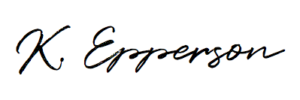Are you someone who always has the drive, motivation, and energy to get in a workout?
If you are, then you should probably stop reading this and go back to Narnia or whatever fictional world you came from.
If, however, you are a mere mortal, like myself, who has “off days,” then you should keep reading.
What motivates you to work out? What gives you the ability to push through the five a.m. alarm or the exhaustion at the end of a long day? What is the secret of those who make significant gains in their health goals?
James Clear says it best in his book, “Success is the product of daily habits- not once-in-a-lifetime transformations.” By the way, if you haven’t read Atomic Habits, I would highly recommend it, not just for exercise, but for any type of habit transformation you want to make. Basically, he is saying that the small action steps we take over time work together to make a much larger difference than singular giant steps.
Consistency > Intensity
If you exercise consistently, you’ll have more longterm gains. But what happens when you’re tired and you’re not “feeling it?” What happens when you don’t get home until late and you’ve got an early start the next day? Here are 4 ways to help yourself push through when it’s tough:
Make it a routine.
Prevention is the best medicine, right? I imagine that if I looked at your weekly schedule, there would be a lot of things you did that you didn’t feel like doing (Laundry, anyone?).
So why did you do them?
You had to, it’s your routine. I don’t like waking up early, but when that alarm goes off, I start my day… slowly, perhaps, but still. The point is that scheduling exercise and making it non-negotiable saves you the decision. You don’t have to ask yourself anymore “Am I going to workout today?” You already know the answer. It’s on the schedule, so yes.
Pro tip:
If you schedule your exercise after work, pack your bag that morning and bring it with you. That alone has seen me through many workouts. It might seem obvious, but it makes a big difference.
Don’t put any expectations on your performance.
Part of the reason we dread exercise is because we dread how difficult it is. We don’t feel good during the exercise, even if we feel great after.
But what if you didn’t put any pressure on yourself? If running three miles sounds too hard, try a mile. If running at all is too much, commit to walking. If the thought of lifting weights feel like it would drain you, use lighter weights. Modify, modify, modify.
You may be wondering:
Won’t that negate the benefit of exercising? Shouldn’t it be difficult?
Well, yes and no.
If we never push ourselves, we will never make gains. That is true. However, if mentally “excusing” our performance means we show up that day, it’s worth the benefit. I’ve found that when I just show up for the workout, even on days when I’m not feeling it, I always do more than I intend to do. Once you’re walking that mile, it’s not such a big deal to walk one more. One more set of pushups is not bad compared with the 3 sets you were mentally dreading before the workout. We sometimes build up the exercise in our minds, making it seem more difficult than it is. By mentally adjusting our expectations to something manageable, we realize the workout isn’t so bad after all. It’s like that child that has to be tugged kicking and screaming into the doctor’s office for an immunization, only to realize one second later that the pain is already gone and they now have a sucker in their hand. Don’t be that child. You can do this.
Pick an exercise you enjoy (or at least don’t hate).
For most of us, there are activities that we enjoy more than others. Exercise is beneficial to our mental and physical health, but it’s hard to do when you dread it. So if you love to hike? Do that. If you enjoy Zumba or dance classes? Go for it. On the other hand, if there’s an exercise you hate, don’t do it or find an alternative.
Let me explain:
I don’t like yoga. To all my yogis out there, forgive me. It’s one of my least favorite types of exercise. I feel like a beached whale struggling for its life every time I do the triangle pose. For that reason, I rarely practice yoga. For flexibility, I stretch. Are there benefits I’m missing out on by not doing yoga? Sure. Are they worth dreading the work out every day? No. Consistency is key, and making the activity fun is a huge way to maintain consistency. So find something you enjoy and do that!
Focus on just the next step.
Before exercising, I’m mentally running through all the things that have to happen before I’m done. I have to:
- Put on my gym clothes and tennis shoes
- Get in the car and drive to the gym/park/etc.
- Get my headphones on and choose good music
- Not die during the exercise
- Stretch so I don’t die after the exercise
- Go home and shower
That’s a big list to tackle mentally. But what if I just focused on one step?
- Put on my gym clothes.
There, that’s not bad. That’s easy! By focusing on one step at a time, you are breaking down the task into manageable chunks. When you’re exhausted, exercising will seem like an insurmountable task. But you can manage to put on some tennis shoes. You can manage to start your car. You can… well, I won’t go on, but you see the effect? Just take it one step at a time.

